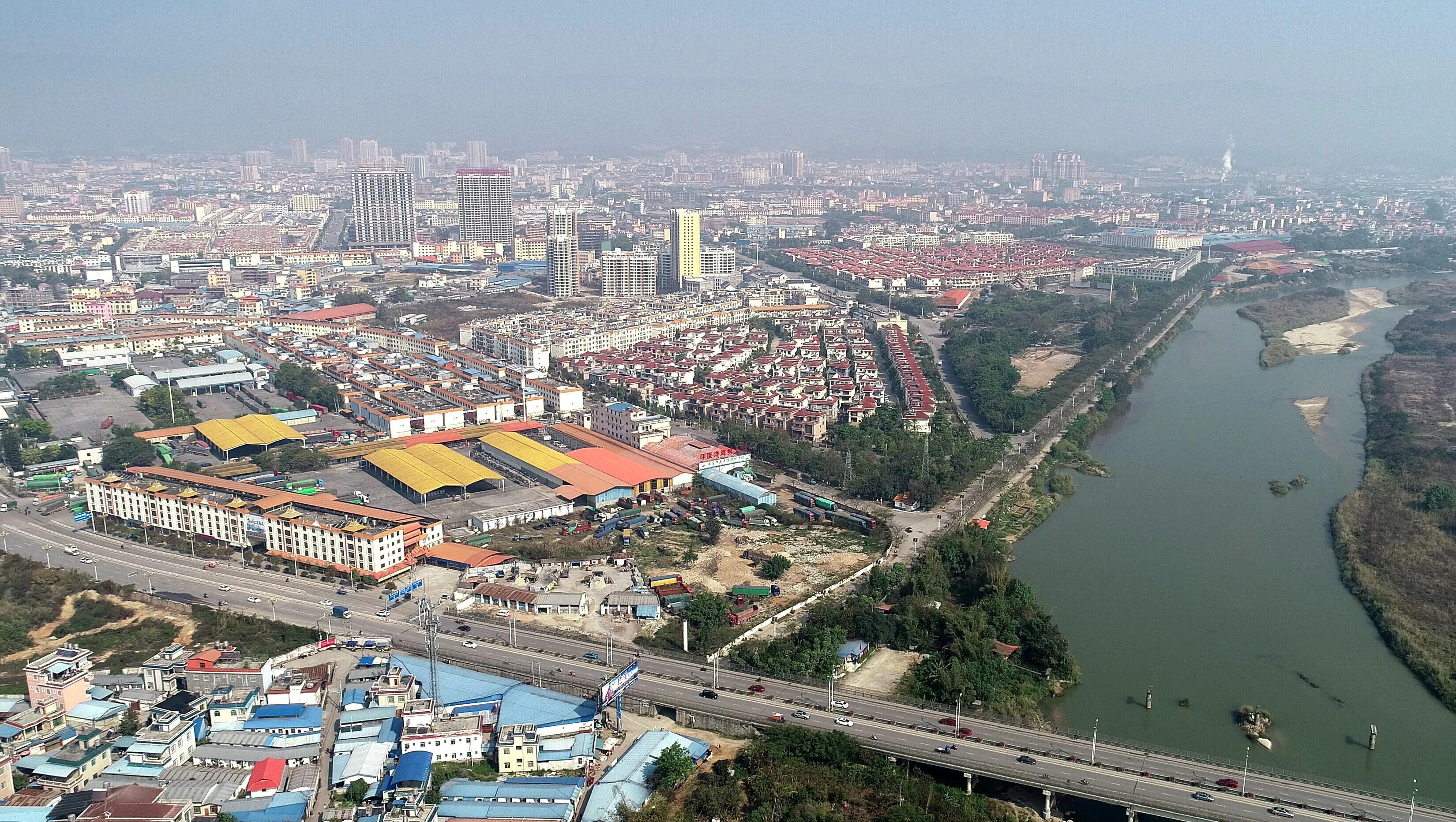
Ruili is a vibrant and enchanting city located in the Yunnan province of China. With its rich history, cultural diversity, and natural beauty, Ruili has become a popular destination for both domestic and international travelers. Situated on the border with Myanmar, this border town is known for its unique blend of Chinese and Southeast Asian influences.
In this article, we will delve into 31 fascinating facts about Ruili that will give you a deeper understanding of this captivating city. From its strategic location as a key trading hub to its breathtaking landscapes and incredible cultural heritage, Ruili offers a wealth of experiences that are sure to leave a lasting impression. So, get ready to embark on a virtual journey through Ruili as we uncover the secrets and wonders that make it a must-visit destination.
Key Takeaways:
- Ruili, a vibrant city in China, is a melting pot of cultures, offering diverse experiences from bustling markets to stunning natural landscapes. It’s a gateway to Southeast Asia, rich in history and traditions.
- With its rich cultural diversity and stunning natural beauty, Ruili is a must-visit destination for those seeking unique experiences and a glimpse into the harmonious coexistence of different ethnic groups.
The Location of Ruili
Ruili is a city located in the southwestern part of Yunnan province in China. It shares borders with Myanmar, making it an important port for trade and cultural exchange.
Rich Cultural Diversity
Ruili is home to a diverse population comprising various ethnic groups including Burmese, Dai, Han, Lisu, and Jingpo. This multicultural blend contributes to the vibrant cultural scene in the city.
Bustling Border Town
As a major border town, Ruili serves as an important trading hub between China and Myanmar. It experiences high volumes of cross-border trade, particularly in commodities such as jade, gemstones, and agricultural products.
Gateway to Southeast Asia
Ruili is often referred to as the gateway to Southeast Asia due to its strategic location. It serves as a key transportation hub, providing access to neighboring countries such as Myanmar, Thailand, and Laos.
Natural Beauty
The city of Ruili is blessed with breathtaking natural landscapes, including lush mountains, scenic rivers, and picturesque waterfalls. It offers ample opportunities for outdoor activities and eco-tourism.
The Unique Panlong River
Flowing through Ruili, the Panlong River is a significant landmark in the city. Its crystal-clear waters, surrounded by lush greenery, create a serene and tranquil atmosphere for locals and visitors alike.
Burmese Influence
Given its proximity to Myanmar, Ruili showcases a strong influence of Burmese culture. This can be seen in the local cuisine, traditional clothing, and religious practices of the people.
A Haven for Shopaholics
Ruili is renowned for its vibrant markets and shopping streets, offering a wide range of products including gems, jade, textiles, handicrafts, and traditional Burmese goods. Bargaining is a common practice here.
Unique Cuisine
The culinary scene in Ruili is diverse and reflects the fusion of Burmese and Chinese flavors. Local specialties include delicious noodle dishes, spicy curries, and a variety of fresh seafood.
The Colorful Water Splashing Festival
One of the most lively and celebrated festivals in Ruili is the Water Splashing Festival, influenced by the Dai ethnic group. It involves splashing water on each other to symbolize washing away the past year’s misfortunes.
Ruili Dancing and Music
Music and dance are integral parts of the vibrant culture in Ruili. Traditional performances, accompanied by lively music and colorful costumes, can be witnessed during festivals and special occasions.
Religious Diversity
Ruili is home to a wide range of religious beliefs and practices. Buddhism, Taoism, Christianity, and traditional Chinese folk religions coexist peacefully, creating a rich tapestry of faith in the city.
The Established Border Gate
As an important border gate, Ruili serves as a key entry point for travelers crossing between China and Myanmar. It facilitates both tourism and trade between the two countries.
Multilingual Environment
Due to its international connections, Ruili boasts a multilingual environment. Mandarin, Burmese, Dai, Jingpo, and various other languages can be heard on the streets, adding to the city’s unique atmosphere.
Ruili Wildlife Park
For nature enthusiasts, Ruili Wildlife Park offers an opportunity to get up close to a diverse range of animal species, including elephants, tigers, bears, and various exotic birds.
Ancient Ruins of Moweisuo
The Moweisuo ruins, located near Ruili, are archaeological sites dating back to the Stone Age. They provide valuable insights into the ancient history and civilization of the region.
Ruili Night Market
Visiting the bustling night market in Ruili is a must-do for any traveler. Here, you can sample delicious street food, shop for unique souvenirs, and experience the vibrant nightlife of the city.
Jingpo Ethnic Village
The Jingpo Ethnic Village in Ruili offers visitors an opportunity to immerse themselves in the traditional culture of the Jingpo ethnic group. Traditional houses, cultural performances, and handicraft displays are highlights of this attraction.
Pristine Waterfalls
Ruili is blessed with several stunning waterfalls, including the Nongdao Waterfall and the Jinuo Waterfall. These natural wonders provide picturesque backdrops for picnics and outdoor adventures.
Traditional Festivals
Throughout the year, Ruili hosts various traditional festivals that offer a glimpse into the local customs and traditions. These celebrations are filled with colorful parades, cultural performances, and joyous gatherings.
Historical Border Crossings
Ruili has witnessed significant historical events at its border crossings. These crossings have played crucial roles in trade, diplomacy, and cultural exchange between China and Myanmar.
Ruili Museum
The Ruili Museum houses a diverse collection of artifacts, artworks, and historical relics. It provides visitors with a deeper understanding of the region’s history, culture, and the ethnic groups that call Ruili home.
Tea Cultivation
Ruili is known for its tea plantations, where high-quality tea leaves are grown and harvested. The tea industry contributes to the local economy and offers a unique tea-tasting experience for visitors.
Ruili Catholic Church
The Ruili Catholic Church, built during the French colonial period, is a notable landmark in the city. Its stunning architecture and spiritual significance attract both locals and tourists.
Cross-Cultural Weddings
Given the cultural diversity in Ruili, cross-cultural weddings are common, especially between Chinese and Burmese individuals. These weddings showcase the harmonious coexistence of different ethnic groups.
Stunning Sunsets
Ruili is known for its breathtaking sunsets, painting the sky with vibrant hues of orange, pink, and purple. Watching the sun sink below the horizon is a mesmerizing experience for visitors.
Zhangji Waterfall
Zhangji Waterfall, located in the outskirts of Ruili, is a hidden gem of natural beauty. The cascading water, surrounded by lush greenery, creates a tranquil atmosphere for relaxation and appreciation.
Motorcycle Capital
Ruili is often referred to as the “Motorcycle Capital” of China, as motorcycles are the most commonly used mode of transportation in the city. Exploring Ruili on a motorcycle adds an adventurous touch to the experience.
Silk Road Connection
Historically, Ruili served as an important trading post along the ancient Silk Road routes, connecting China with Southeast Asia and the Indian subcontinent. It played a crucial role in the exchange of goods, ideas, and cultures.
Ruili Twin Pagodas
The Ruili Twin Pagodas, located on the banks of the Panlong River, are iconic landmarks in the city. These pagodas showcase exquisite architectural craftsmanship and provide panoramic views of the surrounding area.
Local Handicrafts
Ruili is known for its traditional handicrafts, including intricate wood carvings, silverware, and textiles. These local crafts are highly valued for their artistic beauty and cultural significance.
Conclusion
In conclusion, Ruili is a fascinating city that offers a myriad of incredible experiences for visitors. From its vibrant markets and unique cultural heritage to its stunning natural landscapes and rich history, there is something for everyone to enjoy in Ruili. Whether you are a history enthusiast, a nature lover, or a foodie looking to explore the local cuisine, this city has it all. So, make sure to add Ruili to your travel bucket list and get ready for an unforgettable adventure in this hidden gem of southwest China.
FAQs
Q: What is the best time to visit Ruili?
A: The best time to visit Ruili is during the spring or autumn seasons when the weather is pleasant and comfortable. The months of April, May, September, and October offer mild temperatures and less rainfall, making it ideal for outdoor activities and sightseeing.
Q: Can I visit Ruili without a visa?
A: No, as Ruili is located on the border of China and Myanmar, foreign visitors are required to obtain a valid visa to enter the city. Make sure to check the latest visa requirements and regulations before planning your trip to Ruili.
Q: Are there any safety concerns in Ruili?
A: Like any other city, it is essential to stay cautious and aware of your surroundings while visiting Ruili. It is recommended to follow basic safety precautions, such as avoiding isolated areas at night and keeping your belongings secure. Overall, Ruili is considered relatively safe for tourists.
Q: What are some must-visit attractions in Ruili?
A: Some of the must-visit attractions in Ruili include the Jiegao Border Trade Zone, the Ruili Museum, the Manshu Park, and the Ruili Bird and Flower Market. These places offer a unique glimpse into the city’s cultural, historical, and natural beauty.
Q: Is there any local cuisine I should try in Ruili?
A: Absolutely! Ruili is known for its diverse and delicious cuisine influenced by both Chinese and Burmese flavors. Don’t miss out on trying traditional dishes like Shan noodles, tea leaf salad, and spicy grilled fish. Make sure to explore the local markets to sample the street food delicacies.
Ruili's captivating blend of cultures, stunning landscapes, and vibrant markets make it a must-visit destination in China's Yunnan Province. If you're fascinated by the rich tapestry of Yunnan's history and heritage, be sure to explore our article on 38 intriguing facts about Yuxi, another enchanting city in this diverse region.
Was this page helpful?
Our commitment to delivering trustworthy and engaging content is at the heart of what we do. Each fact on our site is contributed by real users like you, bringing a wealth of diverse insights and information. To ensure the highest standards of accuracy and reliability, our dedicated editors meticulously review each submission. This process guarantees that the facts we share are not only fascinating but also credible. Trust in our commitment to quality and authenticity as you explore and learn with us.


